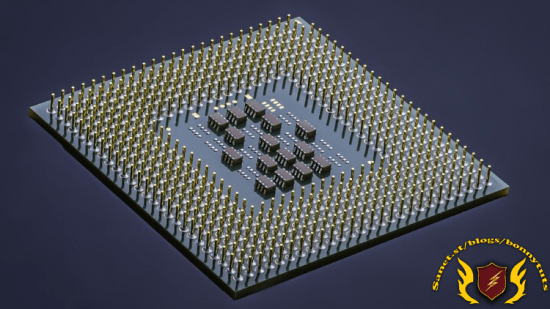
MP4 | Video: h264, 1280×720 | Audio: AAC, 44.1 KHz, 2 Ch
Genre: eLearning | Language: English + srt | Duration: 32 lectures (11h 26m) | Size: 2.96 GB
Become FPGA Design Engineer. Learn FPGA Design Engineering, Design Flows & Tools, FPGA DSP Circuits, Protoflex, PLI etc
What you’ll learn
Gain end-to-end knowledge of FPGA design engineering & implementation
Acquire skills to become FPGA Design & Implementation Engineer
Learn FPGA Design flows & design tools
Understand and implement FPGA Design using Verilog
Learn FPGA Testing
Simulate and implement SOPC Design
Learn how to read data from Peripherals
Learn FPGA implementation of DSP Circuits
Define Wordcount using MapReduce for FPGA
Describe Protoflex and Reconfigurable Hardware
Understand challenges in using FPAA FPGA in Mixed Signal Technology
Get knowledge of Mentor Graphics Tools & Guidelines
Define & execute Spartan FPGA and Memristive FPGA
Requirements
Enthusiasm and determination to make your mark on the world!
Description
A warm welcome to the FPGA Design & Implementation course by Uplatz
FPGA stands for Field Programmable Gate Array. FPGA is essentially an integrated circuit that can be programmed by a user for a specific use after it has been manufactured. The modern day FPGAs contain adaptive logic modules (ALMs) and logic elements (LEs) connected via programmable interconnects. These blocks create a physical array of logic gates that can be customized to perform specific computing tasks. This makes them very different from other types of microcontrollers or Central Processing Units (CPUs), whose configuration is set and sealed by a manufacturer and cannot be modified.
FPGA programming has become a buzzword these days due to it offering considerable benefits over the traditional ICs. FPGA allows you to offload resource hungry-tasks to hardware and thus cause a significant increase in performance. FPGAs can be programmed and reprogrammed according to the dynamic needs.
FPGA Design & Implementation – Course Syllabus
Introduction to FPGA (Field Programmable Gate Arrays)
FPGA Testing
FPGA Design Flows & Design Tools
FPGA Design using Verilog – Introduction
FPGA Design using Verilog – Verilog overview
FPGA Design using Verilog – Data Types
FPGA Design using Verilog – Procedural Assignments
FPGA Design using Verilog – VHDL Design using Verilog
FPGA Design using Verilog – Visual Verification of Designs
FPGA Design using Verilog – Finite State Machines – part 1
FPGA Design using Verilog – Finite State Machines – part 2
FPGA Design using Verilog – Design Examples
FPGA Design using Verilog – Test Benches
FPGA Design using Verilog – SystemVerilog for Synthesis
FPGA Design using Verilog – Packages & Interfaces
Simulate and implement SOPC Design
Reading Data from Peripherals
UART SDRAM Python
Script execution in Quartus and ModelSim NIOS
Image Processing using FPGA
Challenges in using FPAA FPGA in Mixed Signal Technology
Protoflex
Reconfigurable Hardware
Wordcount using MapReduce for FPGA
FPGA implementation of DSP Circuits
Reversible Logic Circuits
FPGA implementation of Divider in Finite Field
Principles of PLI
Spartan FPGA implementation
Programmable Chips and Boards
Memristive FPGA
Mentor Graphics Tools & Guidelines
Who this course is for
FPGA Implementation Engineers
FPGA Design Engineers
FPGA Engineers
FPGA Algorithm Engineers
Newbies & Beginners aspiring for a career in FPGA Design Engineering
FPGA Design Consultants
Anyone interested in Embedded Engineering & FPGA Design
FPGA Crypto Validation Engineers
FPGA Design Application Engineers
FPGA/ASIC Engineers
Electronics & Instrumentation Engineers
Electronics Design Engineers – Medical Devices FPGA
Electronics Engineers VHDL FPGA
Digital Design Engineers
Password/解压密码www.tbtos.com
转载请注明:0daytown » FPGA (Field-Programmable Gate Array) Design & Implementation